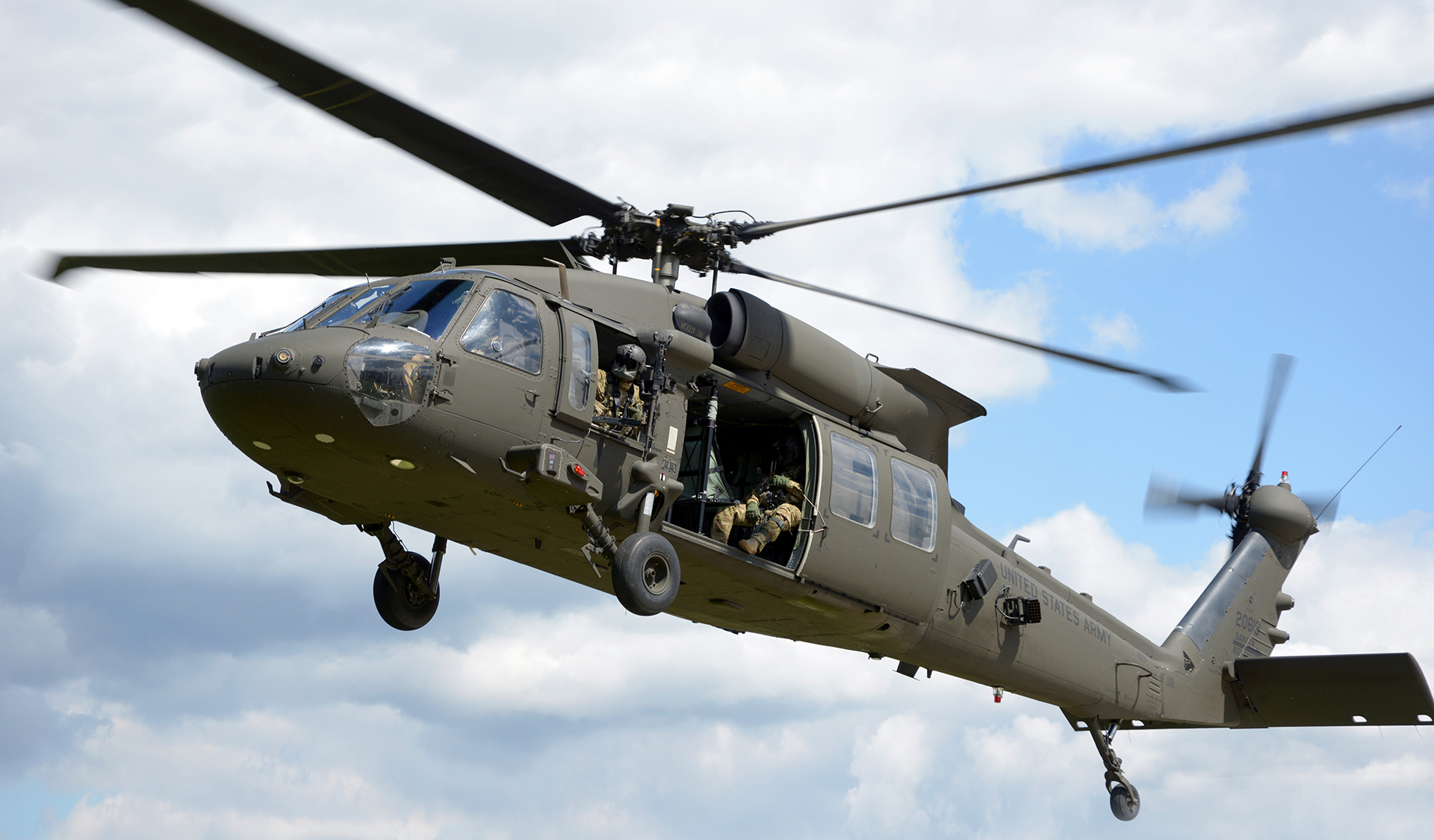UH 60 Black Hawk: Trick Attributes and Innovations
UH 60 Black Hawk: Trick Attributes and Innovations
Blog Article
The Effect of Sustainable Practices on the Future of Airplane Operations and Emissions Reduction
As the aviation sector faces boosting scrutiny over its ecological impact, the adoption of sustainable practices becomes a vital pathway toward future airplane operations and emissions decrease. Innovations in lasting aviation gas and developments in crossbreed propulsion technologies stand at the forefront of this makeover, encouraging significant decreases in greenhouse gas exhausts. The successful assimilation of these campaigns hinges on a variety of aspects, consisting of regulative structures and market collaboration. The question stays: how will these progressing techniques improve the characteristics of air traveling and add to a more lasting future?

Introduction of Lasting Practices
Sustainable methods in airplane operations include a variety of techniques aimed at minimizing environmental impact while preserving functional performance. These techniques are important in the aeronautics sector's commitment to reducing its carbon footprint and adhering to worldwide ecological requirements. Key campaigns consist of maximizing flight courses to reduce fuel consumption, boosting upkeep procedures to ensure airplane run at peak efficiency, and carrying out sophisticated modern technologies such as winglets and light-weight materials that boost aerodynamics.

Engaging and training personnel on sustainability practices also play a vital role, fostering a society of environmental responsibility within organizations. Overall, the assimilation of these lasting techniques not just helps in reducing discharges yet also boosts the long-term feasibility of the aeronautics industry, guaranteeing it fulfills the demands of both clients and governing bodies while contributing to global sustainability goals.
Cutting-edge Fuel Alternatives
Countless innovative fuel options are becoming crucial services to lower the aeronautics market's reliance on standard nonrenewable fuel sources. Among these alternatives, Sustainable Air travel Gas (SAFs) have actually obtained considerable attention because of their potential to lower lifecycle greenhouse gas discharges by approximately 80% compared to standard jet gas. SAFs are derived from numerous feedstocks, consisting of waste oils, farming residues, and even algae, making them a flexible alternative for the industry.
Another encouraging option is hydrogen fuel, which, when made use of in gas cells, creates just water vapor as a byproduct. In addition, electrical propulsion systems are being checked out, leveraging battery modern technology to power airplane.
Lastly, biofuels derived from biomass are being investigated, offering a sustainable alternative that can be combined with typical gas. Collectively, these innovative fuel options stand for a crucial step towards attaining a sustainable aviation community, aligning with international discharges decrease targets and enhancing the sector's ecological stewardship.
Technological Innovations in Air Travel

Just how can technological developments improve the future of aeronautics? Developments such as electric and hybrid propulsion systems are at the forefront, promising significant decreases in Click Here gas intake and greenhouse gas exhausts.
Additionally, the execution of advanced materials, such as light-weight composites, contributes to enhanced aerodynamics and gas efficiency. Using expert system and equipment discovering in flight procedures optimizes path planning and minimizes fuel shed by enabling real-time modifications based upon weather and website traffic conditions. Furthermore, the development of self-governing and remotely piloted aircraft systems stands to change cargo and guest transport, possibly increasing effectiveness while decreasing human error.
In addition, sustainable air travel modern technologies, consisting of sophisticated air web traffic administration systems, can enhance operations and decrease blockage, bring about lower discharges during flight. These developments collectively represent a paradigm shift in aeronautics, promising a future where sustainability and functional performance are linked, thereby sustaining the market's dedication to decreasing its ecological effect.

Governing Framework and Compliance
In light of the expanding focus on ecological stewardship within the air travel sector, the regulatory structure governing aircraft operations is evolving to advertise sustainable techniques. Regulative bodies, such as the International Civil Air Travel Organization (ICAO) and numerous national aviation authorities, are introducing rigid guidelines intended at decreasing exhausts and boosting functional effectiveness.
These guidelines commonly consist of the fostering of Sustainable Aviation Gas (SAF), which has been identified as an essential component in attaining lower carbon impacts. Compliance with these guidelines calls for airlines to carry out sophisticated technologies and functional methods, such as maximized trip paths and enhanced air website traffic administration, to reduce fuel intake.
Additionally, the enforcement of discharges trading systems and carbon countering efforts is becoming progressively common, engaging airline companies to keep track of and report their discharges precisely. Non-compliance can result in substantial fines, thus pressing operators to prioritize sustainability in their organization models.
Eventually, the advancing governing landscape not just drives development and investment websites in eco-friendly modern technologies but likewise cultivates a culture of responsibility within the aeronautics sector. As these frameworks remain to create, the focus on sustainable practices will certainly be important to accomplishing the sector's long-term environmental objectives.
Future Fads in Airplane Workflow
As the air travel industry adapts to a progressively rigorous regulatory setting, future fads in aircraft procedures are readied to concentrate on cutting-edge solutions that even more improve sustainability and performance - uh 60. Trick developments will likely include the adoption of sophisticated air web traffic monitoring systems, which make use of real-time data and expert system to enhance flight courses, minimizing gas intake and discharges
Another significant fad is the increased combination of sustainable aeronautics gas (SAFs) These alternatives to standard jet fuel, derived from sustainable click here for more info sources, can dramatically reduce lifecycle greenhouse gas emissions. The industry's commitment to SAFs will likely accelerate as airlines collaborate with gas producers to make sure availability and cost-effectiveness.
Additionally, the push towards electrification and crossbreed propulsion systems is obtaining energy. Arising airplane styles will include these technologies, offering quieter and more reliable procedures, specifically for short-haul flights.
Verdict
The fostering of lasting air travel gas, coupled with developments in electric and hybrid propulsion systems, is vital for reducing lifecycle greenhouse gas discharges. Optimizing trip courses and embracing innovative innovations add to a quieter and extra eco pleasant air travel industry.
Technologies in sustainable air travel fuels and developments in crossbreed propulsion innovations stand at the leading edge of this transformation, appealing considerable decreases in greenhouse gas emissions.Many innovative gas options are emerging as essential services to decrease the aviation market's dependence on traditional fossil fuels - uh 60. Among these alternatives, Lasting Air travel Fuels (SAFs) have acquired substantial attention due to their potential to reduce lifecycle greenhouse gas exhausts by up to 80% compared to conventional jet fuels.An additional substantial pattern is the increased assimilation of sustainable aeronautics gas (SAFs) The adoption of lasting aviation gas, combined with advancements in electrical and hybrid propulsion systems, is important for decreasing lifecycle greenhouse gas exhausts
Report this page